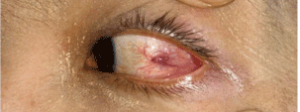ZOONOTIC DISEASE AND INTESTINAL PARASITES
WHY DO A FECAL EXAMINATION?

Roundworms, hookworms, whipworms, and tapeworms are commonly encountered intestinal parasites in dogs and cats. In addition to causing harm to the animal, these parasites also pose a zoonotic threat to people. Humans can become infected through direct or indirect contact with infective stages of zoonotic parasites shed to the environment (parks, playgrounds, yards, sandboxes) from dog and cat feces. Children are more prone to infection as they are more likely to play in and touch infected dirt or sand and then put their hands into their mouths. Ingestion of roundworms (Toxocara canis and felis) can cause visceral, ocular and neural larva migrans. Ocular larva migrans can lead to blindness. Hookworms (Ancylostoma caninum and tubaeforme) typically infect the skin (cutaneous larva migrans), but can cause visceral disease as well. Echinococcus tapeworm infections are starting to become more common in areas of Canada and the United States where they had not been recognized previously. Transmission to humans can result from ingestion of eggs released in an infected dog’s feces, potentially resulting in a severe, usually liver, infection.
PREVENTION
HERE ARE SOME WAYS TO HELP PREVENT ZOONOTIC DISEASE FROM INTESTINAL PARASITES:

- Promptly clean up pet waste. Many parasites or bacteria are not infectious in fresh pet waste, but become infectious over time and can contaminate the soil, sand or grass if allowed to sit.
- Practice good hygiene. Wash your hands thoroughly with hot, soapy water after playing with your dog or handling their waste. Wear gloves when gardening or working in areas where dogs, cats, or other animals may have urinated or defecated. Children should washhands thoroughly after playing in areas where pet waste may have been deposited. Keep sandboxes covered when not in use.
- With the advice of your veterinarian, establish a preventative drug program for deworming on a regular basis along with routine fecal exam. Flea control is also advised to prevent tapeworm infections. Should your dog or cat develop diarrhea or parasites are noted in their feces, prompt fecal examination is advised.
